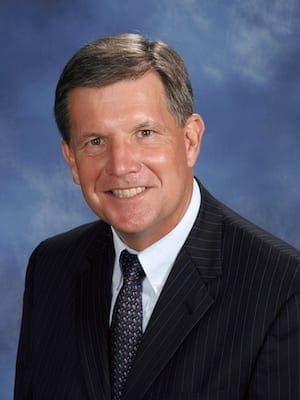Christmas is always on Dec. 25. Why is Easter not on the same date every year?
This year, for the first time since 1956, Easter comes on April 1, creating a curious juxtaposition of sorts.
Next year, Easter will be celebrated on April 21, just as the redbuds, dogwoods and azaleas are beginning to bloom. In other years, Easter has come in late March when the weather is still wintry.
Why does the date vary? Because the date of Easter is not an actual anniversary of the resurrection, when is the most appropriate time to celebrate?
That very question caused considerable debate and controversy in the early church.
A quarrel broke out in the middle of the second century between church leaders in Rome and those in Asia Minor regarding the appropriate date for celebrating Easter.
The practice in the East was to observe Easter according to the moon regardless of the day of the week the observance fell on. The practice in Rome was to wait until the following Sunday.
Bishop Polycarp, who was a disciple of the Apostle John, represented the East, and Bishop Anicetus represented the West.
Because they could not agree on the date, each continued to observe Easter according to his own conviction. The controversy became so intense that it threatened the harmony of the Christian world.
Councils were called in Rome and Palestine to debate the merits of both arguments. Most of the participants generally favored celebrating Easter on Sunday.
When the bishop from Ephesus and many of the churches in Asia Minor refused to change their practice, they were declared “excommunicated” from the church by Bishop Victor of Rome.
Later, the Council of Nicea, convened by Augustine in 325 C.E., affirmed the calculation used to determine the official date of Easter and that calculation is still used today.
Easter is celebrated on the Sunday following the first full moon falling on or after March 21. Therefore, Easter cannot come before March 22 or after April 25.
Even though the name, “Easter,” is packed with spiritual connotation, the term is derived from a pagan spring festival.
Some believe it was named after the Teutonic god or goddess of spring. However, the name was seized by Christian believers and converted to a day of worship and feasting to celebrate the resurrection of Christ.
To underscore the earth-shaking significance of this day, Jim Pleitz, late pastor emeritus of First Baptist Church of Pensacola, Florida, often concluded his Easter sermons by proclaiming, “Easter is a blessed reminder that ALL is well. … We are victorious even in death!”
Regardless of when it appears on the calendar, in March or in April, Easter is a high and holy day, a designated occasion to affirm and proclaim the foundation of the Christian gospel: Christ is risen! Christ is risen indeed!
Barry Howard serves as leadership coach/consultant with the Center for Healthy Churches, and is an EthicsDaily.com board member. He resides in Pensacola, Florida. You can follow him on Twitter @BarrysNotes.
Pastor at the Wieuca Road Baptist Church in Atlanta. He also serves as a leadership coach and columnist for the Center for Healthy Churches. He and his wife, Amanda, live in Brookhaven, Georgia.

